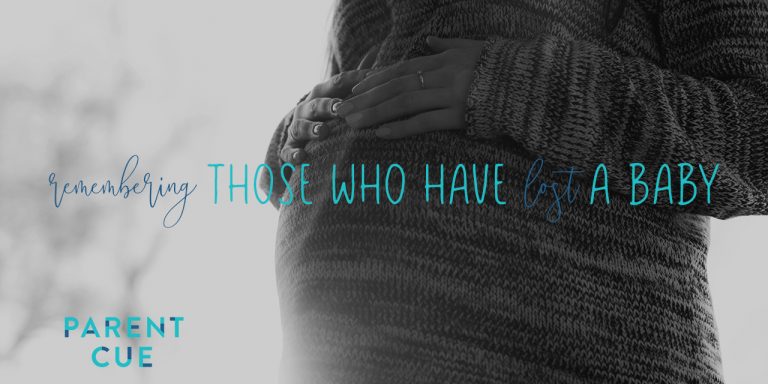
I remember the moment I became a mother.
It was early Sunday morning. Still dark outside. My brain was groggy. Exhausted. A million things were running through my head but the loudest was “SLEEP.” I had to wait just a little longer until I could wrap myself back up in my warm bed.
And then I saw the lines.
Plural.
There were two blue lines growing darker by the second on the home pregnancy test I was holding. My brain froze for a beat. I stopped breathing. Everything was impossibly still. My entire world changed in that moment. It was imperceptible from the outside but every fiber of my being had been transformed. I was no longer just me.
I was a mother.
That moment happens differently for every parent. For some it’s seeing the first image of their child in an email from their caseworker. For others, it happens in a phone call from a doctor with news of four healthy embryos. Life changes—people are changed—when you take the first step (or are shoved head first) into parenthood and it rarely happens the first moment you hold your child.
Parenthood starts long before that.
It probably goes without saying, I did not go back to sleep that Sunday morning. I spent hours googling things like “Due Date Calculator”, “Best prenatal vitamin”, “Embryo at 4 weeks”, “How bad is sushi when you’re pregnant?”, and “Sushi delivery open now”.
Sometime between discovering no one delivers sushi at 6 am on a Sunday (reason #367 to live in NYC) and reading the wonderful term “mucous plug” for the first time, I closed my computer, set my phone aside, laid a hand on my belly and smiled, feeling my capacity for love exploding, all because of this tiny sesame seed growing in my womb.
That sesame seed is turning FIVE this month (and asked for a cell phone for her birthday because “teenagers have cell phones”). And the last five years have been a continual adjustment to whatever each new phase brings but none so monumental as the moment I learned of my child’s existence.
Which is why I really shouldn’t have been as shocked as I was by the suffocating pain of losing our second baby at 10 weeks.
My mom had always talked openly about her miscarriage. I had a couple friends who’d gone through it as well. I knew miscarriage wasn’t easy or fun but it seemed as if the general response was as if it lay somewhere between a fender bender and having your wisdom teeth removed on the spectrum of life’s troubles.
So when I felt as though I’d lost a child I already loved deeper than my own self, I was confused. Something had to be wrong with me. People don’t feel like this about “just” a miscarriage. It’s an inconvenience. It’s a little sad. It’s not devastating and life-changing.
It took me a year, and the loss of our stillborn daughter, to openly admit how shattered I was by our first-trimester miscarriage. The more I open up, the more stories I hear, the more I reflect, the clearer it becomes that of course I was devastated. It took me a total of three seconds to fall hopelessly in love with my (almost) 5-year-old. I’d spent nearly two months with my second baby. I was a mother of two with only one child to show for it.
There are many ways to explain why miscarriage is historically treated as such a non-issue in our society. But the why is not important. The important thing is to know and believe miscarriage is the loss of a child.
You may immediately push back and think, “Now wait a minute. How can you compare the pain of a miscarriage to that of a mother who lost her 9-year-old to cancer or the family who lost their teen to a car crash?”
My answer is: you can’t. You can’t compare grief. There is no way to compare the grief I felt when I lost my second baby in miscarriage to the grief I felt holding the stillborn body of my third. But to say the pain of my miscarriage at 10 weeks wasn’t real because of the (arguably more traumatic) loss that came next is insane.
Miscarriage is the loss of a child. No subsequent or outside tragedy can make that untrue. And the acknowledgment of that truth does not render you unable to feel pain or empathy for subsequent or outside tragedies.
You may not have experienced miscarriage or stillbirth but you know someone who has. Someone who is trying to navigate a grief that is rarely acknowledged. Someone trying to figure out how God fits into this unexpected path. Someone dreading the happy families they are confronted with everywhere they turn. So, what can you do?
October 15th is Pregnancy and Infant Loss Remembrance Day. Traditionally, people join in a Wave of Light around the world by lighting a candle at 7 pm (local time). You can also reach out to a friend or acquaintance you know has suffered this kind of loss. Let him or her know they are not alone in remembering their child. Or you can initiate a conversation around the topic by joining a few couples or mothers together to tell their stories. It can be a weekly small group, a book club, a single coffee date or a low key memorial service for the babies (and families) in your community that need recognition.
To help you acknowledge these babies and the grief their families experience, we have created a memorial event package called Made Known. If you are interested in suggesting this to your church leaders, you can read more about it here.
Whether it’s a memorial service, phone call, or a few moments of self-reflection, we all have the ability to change the conversation around pregnancy and infant loss—to let the mothers and fathers, whose lives changed in an instant, know we see the change and remember the babies they never got to raise.
Source: The Parent Cue





